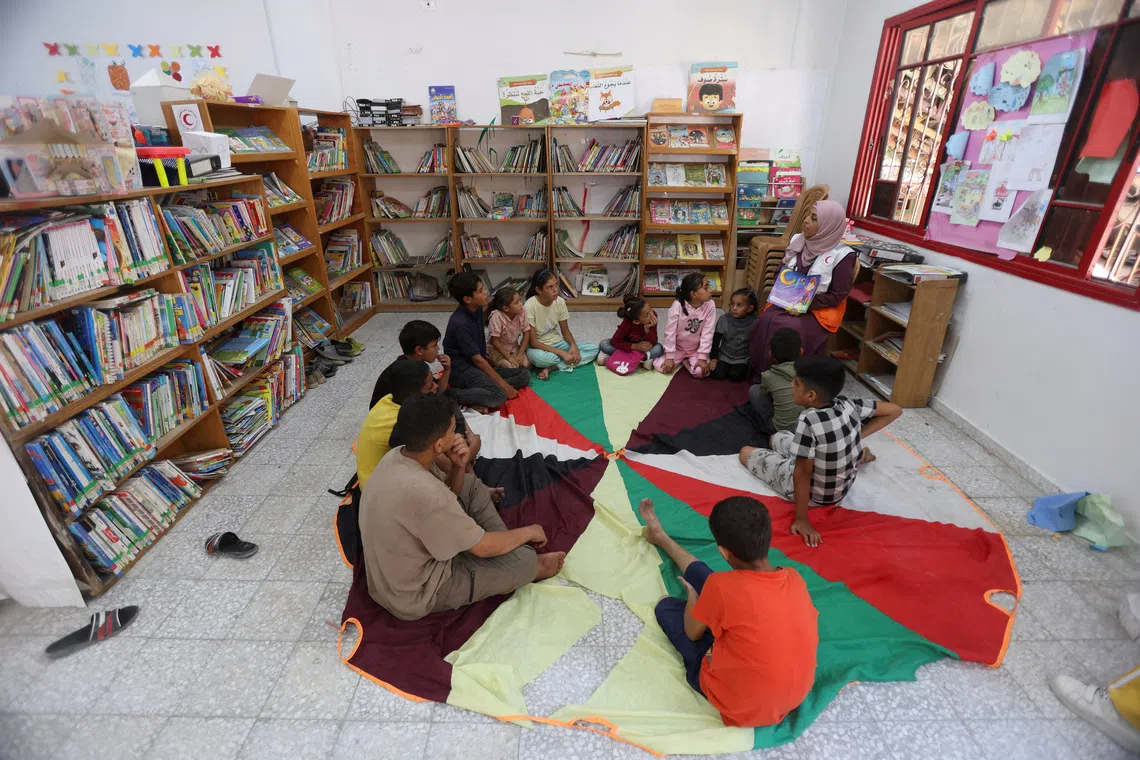Gaza’s psychological trauma brings large numbers to seek help
Sign up now: Get ST's newsletters delivered to your inbox

A Palestinian Red Crescent Society member reading a story to children as part of mental support activities at the organisation’s centre in Khan Younis on Oct 30.
PHOTO: REUTERS
Follow topic:
GAZA STRIP – Gaza residents are suffering “a volcano” of psychological trauma from Israel’s devastating military campaign that has become clear since October’s truce, according to Palestinian mental health specialists.
Two years of intense Israeli bombardment and repeated military incursions that local health authorities say have killed more than 68,000 people and caused widespread homelessness and hunger have affected all of Gaza’s 2.3 million inhabitants.
The crisis is evident in the large numbers seeking treatment from the Gaza City Mental Health Hospital team, now working out of a nearby clinic because their building is damaged, said its head, Dr Abdallah al-Jamal.
“With the start of the truce, it was like a volcano erupting in patients seeking mental health services. Even the stigma that used to be present before, the fear of visiting a psychologist, does not exist any more,” he said, describing “a very large increase” in numbers from before the conflict.
Dr Jamal and a colleague are working as best as they can, but with the hospital having undergone significant damage, their resources are limited and they have to share a room, depriving patients of consultations in privacy.
“That is honestly insulting in the way services are provided, but we are trying as much as possible to find alternatives,” he said of the more than 100 patients they see there every day.
Among children, there are widespread reports of night terrors, bed-wetting and other symptoms, including the inability to focus, said mental health specialists for the Palestinian Red Crescent Society.
“Gazan children are now suffering from shortages of food, water, shelter and clothing,” said Ms Nivine Abdelhadi, a specialist from the organisation, which is holding activities for children such as games and storytelling.
The ceasefire came into effect on Oct 10
It brought a halt to major warfare in the conflict, which was triggered by the Hamas attack on Israel on Oct 7, 2023, that killed around 1,200 people, according to Israeli tallies. REUTERS

